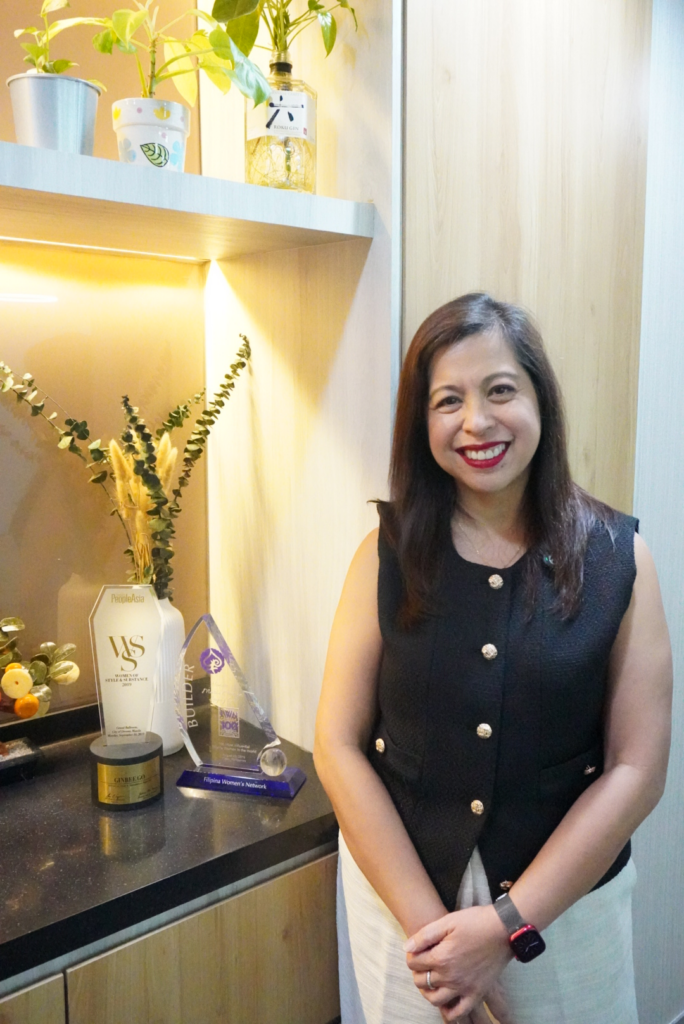As National Women’s Month draws to a close, BPI head of consumer banking MARIA CRISTINA ‘GINBEE’ L. GO pens an empowering message for women in the digital age.
March is an inspiring time as we come together to celebrate National Women’s Month. This year’s theme, “Babae sa Lahat ng Sektor, Aangat ang Bukas sa Bagong Pilipinas,” highlights the vital role of women in shaping a better future for all. More than just a slogan, this theme is a powerful call to action—urging us to break down barriers, create opportunities, and ensure that women thrive economically.

In recent years, digital tools have become a game-changer for women, giving them more control over their finances and careers. With digital banking and e-commerce, women can start businesses, reach a broader customer base, and handle their money with ease. But beyond convenience, these platforms offer something more valuable: flexibility. For mothers, caregivers, or those with mobility restrictions, the ability to work from home, set their own hours, and earn a living without compromising their responsibilities is life-changing. Digitalization is not just about technology—it is about giving women the freedom to shape their own futures.
Digital economy for Filipinas
Cognizant of these benefits, the Bangko Sentral ng Pilipinas (BSP) continues promoting digital financial transformation. Some of the BSP’s initiatives include the Digital Payments Transformation Roadmap, which was able to meet its target of digitalizing 50 percent of payments by 2023, with digital transactions increasing to 52.8 percent of total monthly retail payments from 42.1 percent in 2022.
Beyond government initiatives, private financial institutions such as the Bank of the Philippine Islands (BPI) continue to develop innovative tools that support women’s financial independence. The BPI app is equipped with Track and Plan, an AI-powered tool that provides financial insights, making it easier to track expenses, receive payment reminders, and enhance financial well-being. This tool is useful as women often take on the crucial role of managing household finances, including budgeting, paying bills, and overseeing daily expenses.
For women entrepreneurs, BPI BizKo offers digital banking solutions tailored for small businesses. BizKo simplifies financial management tasks such as payment tracking, invoicing, and payroll processing. A 2023 UN Women report stated that women spend up to three times more on unpaid domestic work (i.e., caregiving, household chores) than men. This reduces their time to do financial tasks or to visit physical banks for business transactions. Thus, BizKo helps address this challenge by providing an accessible and efficient platform for women business owners.
Similarly, BanKo, a BPI subsidiary, supports microfinance clients by simplifying loan applications through the BanKo Mobile App. BanKo’s eNay App also connects sari-sari store owners with suppliers, helping them manage inventory efficiently and reduce costs.
The rise of digital payments has indeed helped fuel women-led entrepreneurship through e-commerce platforms. In a 2021 report, the International Finance Corporation (IFC) noted that two-thirds of businesses in Lazada are women-owned, showing women’s active participation in e-commerce. Similarly, a study done by the Asian Institute of Management (AIM) in 2023 stated that women microentrepreneurs used various platforms like Facebook, Shopee, Lazada, TikTok, and Instagram for their business because they can sell from their homes, use their personal equipment, and transact with customers more efficiently.
With the push for digital payments, it is now even more convenient for women entrepreneurs to reach more customers, access financial support, and build a stable future for themselves and their loved ones.
A safer digital economy for women
Despite the many opportunities brought by digital payments, there is a growing challenge that cannot be ignored: scams. Online fraud and phishing schemes have become everyday threats as more people use digital wallets. These scams do not just affect big businesses—they often target regular people, including small business owners and women entrepreneurs who may not be familiar with cybersecurity risks.
A 2022 BPI report revealed that women are more frequently targeted for fraud, with scammers typically operating between 10 a.m. to 5 p.m., peaking at 2 p.m. This highlights the urgent need for stronger digital safety measure to protect women’s financial security.
For women relying on digital payments and online businesses, a single scam can be devastating. Losing hard-earned money and dealing with fraudulent transactions can set them back financially. This is especially challenging for those in the informal sector or startups, who lack savings and legal support. Thus, digital safety is crucial for their financial security.
To help protect people from online fraud, new measures have been put in place. One major step is the Anti-Financial Account Scamming Act (AFASA), a law designed to combat online fraud. With digital transactions becoming more common, AFASA helps ensure that scammers face real consequences.
While stronger laws are vital, awareness is equally important. Collaborative efforts by the agencies, and private financial institutions are necessary to teach scam prevention. Combining legal measures with financial education and robust security empowers women to confidently use digital tools to further empower their families and livelihood.
The rise of digital payments and e-commerce has opened up incredible opportunities for women, giving them the chance to grow their businesses, support their families, and gain financial independence. With government and private sector efforts for digitalization, embracing cashless transactions has never been easier. But as digital finance grows, so do the risks—online scams have become a real threat, especially for small business owners. To truly empower women in this space, regulations, access to financial education, and cybersecurity measures are crucial in helping women navigate the digital economy. Through these, we can create a digital space where women feel safe, empowered, and ready to succeed.






